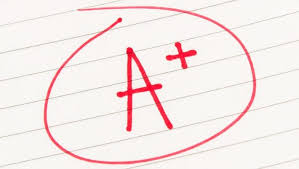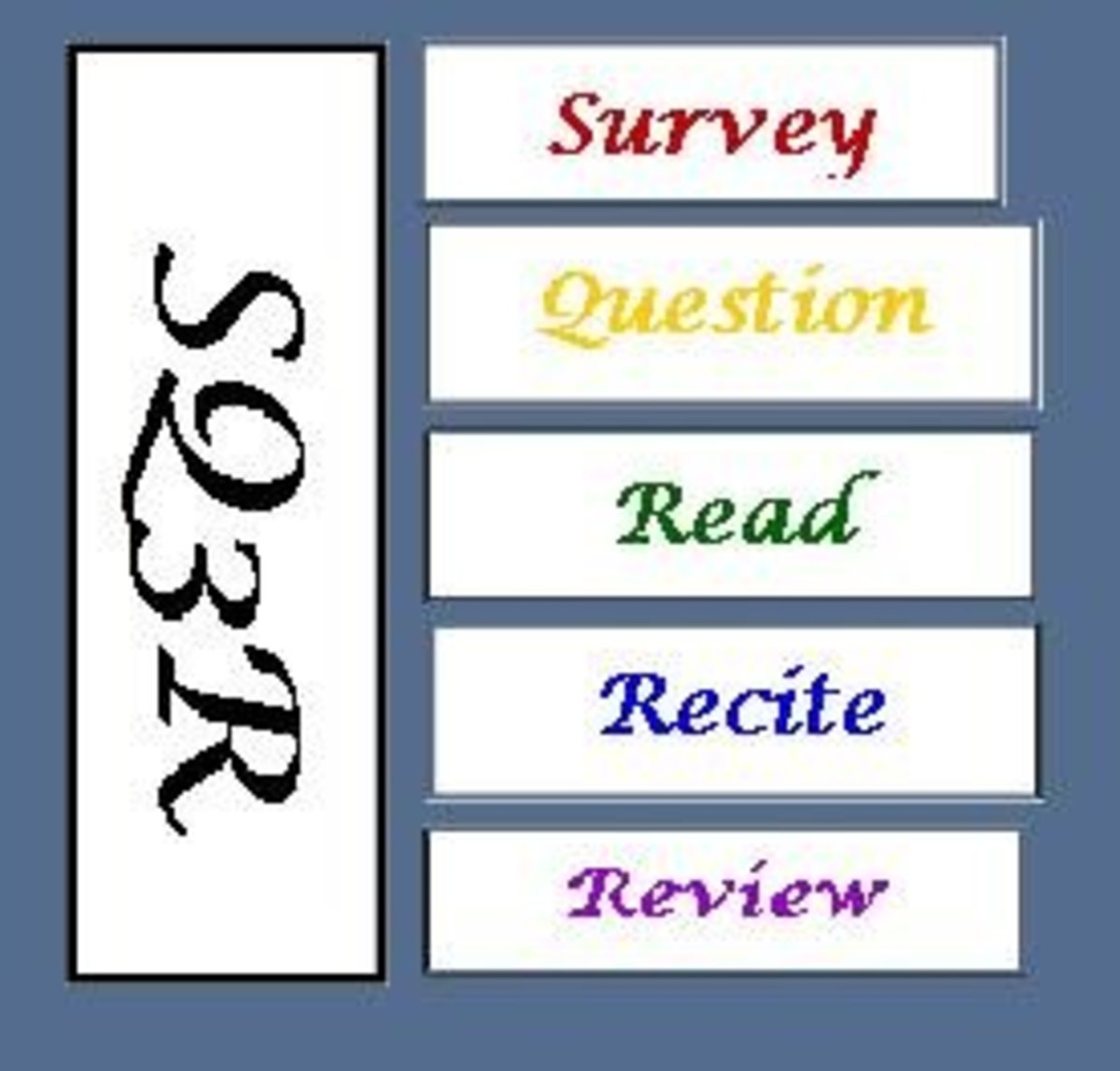Why Grades Are Counterproductive in Higher Education
Throughout my time in college, I have been subjected to long nights of studying, headaches from lengthy assigned readings, and excruciating finger cramps from typing out extensive essays. However, despite all this effort and perseverance, I cannot accurately recall a lot of pertinent information from most of my classes here at DU. This gap in genuine learning can be attributed to Marx’s theories on alienation and estrangement as well as Durkheim’s theory of anomie.
Author Sarah Mann in her work Students in Higher Education,describes how alienation is at work in higher education settings. In her work, Mann details different forms of alienation including “loss of ownership in the learning process” which is closely related to Marx’s conceptualization of alienation. Karl Marx believed capitalism assaults our human nature because it forces us to sell our labor while forfeiting ownership of the processes and products of our labor. Using Mann’s interpretation, Marx’s concept of “labor” can be applied to schoolwork. Per this interpretation, turning in work for a grade can be viewed as a system of exchange similar to capitalism. Marx describes this alienation in a passage from his work Economic and Philosophical Manuscripts of 1844, when he writes “… the object which labor produces… confronts it as something alien, as a power independent of the producer… The worker is related to the product of his labor as to an alien object.”
Even the process of learning is not owned by the student since teachers control lecture topics, timings, and class styles. As Mann writes, “It is not the learners who own the learning process, but the teachers.” Because of this lack of control, students can feel alienated from their very selves since they have no voice in determining how to pursue their learning desires. Mann explains this in depth when she writes, “Within this context of unequal social and power relationships, it is difficult for the student to find a place in which to ‘be’ at home, and to inhabit his/her own mental and spiritual life.”
I am a psychology and criminology double major with a minor in biology which means that my course schedule is very rigid. Each quarter during registration I experience fits of panic knowing that I have to get into certain classes or else my whole academic tract could become derailed. Each major and minor I have requires me to take certain classes which are often only available for certain time periods. Because of this, I do not have true freedom to pick classes that I actually want to take. One class that was required for my criminology major was boringly titled “sociological imagination and inquiry.” While the class itself was not necessarily boring, I would have liked more options to choose from since I already learned both qualitative and quantitative research practices from the “research methods” class I took for my psychology major. If major requirements were less rigid and allowed for more freedom of choice, I feel that students would be more excited when registration time came around. Because I often am forced into taking general requirement classes rather than ones I have real passion for, I often do not truly enjoy most my classes and thus feel alienated from my college experience.
In Blum’s book I Love Learning, I Hate School,she explores the idea that grades prevent learning rather than promote it. Because of society’s fixation on “getting good grades,” an attitude of “doing whatever it takes” is introduced in higher learning since grades are deemed the bottom line of success no matter how one obtains them. She furthers this stance by writing, “The quest for grades can lead to the sense that students are in school to pursue high grades no matter what the cost. One method is to discern the teacher’s desires… this may produce a profoundly divided self in which the student’s behavior has nothing to do with her or his own intention.”
As Marx theorized, estrangement occurs when one can no longer see themselves in their labor or in the products of their labor. This idea connects with Blum’s writings since students will often tailor their work to fit what they believe their teachers want to hear since the modern college experience is more centered on grades than actual learning. As one student in Blum’s book wrote, “…It’s really like Professor X’s choice. You know, you might as well follow along since he’s the one who’s giving you the grade.” Because of attitudes like this, students appeal to professors wishes rather than genuine learning even at the compromise of their own beliefs thus creating estrangement between their work and themselves.
I know that in high school I had a very snobbish teacher who assigned a particularly terrible magazine project my junior year. Rather than grade based on content of the writings, the teacher would slash students grades if their magazine format did not as closely resemble The New Yorker magazine as possible. Students were paying money to use the exact text of the magazine as well as spending countless hours trying to get the spacing just right in fear of academic retaliation by Mr. Sneyd. By the time the project was done I had lost countless hours of sleep fussing over font sizes, spacing’s, and other formatting details rather than the quality of my actual writing. For this reason, I felt particularly estranged from my finished product and had never been so happy to turn something in. I grew to resent not only the project but also the teacher because I no longer felt connected to my work since I was continually trying to pass of my piece as a New Yorker replica. This example perfectly encompasses Blum’s argument that appealing to a particular teacher’s preferences for a good grade can cause a sense of estrangement between a student and their work.
Durkheim and his theory of anomie can also be applied to higher education in the modern world. Durkheim believed that if left unchecked, capitalism can lead to a constant state of anomie, or a sense of normlessness and confusion. For the individual, this means that there is no proper concept of what is right or wrong. Durkheim believed that anomie is most likely to arise in times of economic crises due to declassification which occurs when individuals find themselves in different castes than they are accustomed to. Durkheim explores this concept in his work Suicide when he writes, “they are not adjusted to the condition forced on them… hence the suffering which detached them from a reduced existence even before they have made trail of it.” Students also are at risk of encountering declassification when they come to college, due to entering a completely new environment with tacit norms that they have yet to learn.
I have experienced anomie in my college experience when I first came to DU and had no idea what the norms were for the University of Denver. I struggled my first few weeks determining what was expected of me in college versus my experience in high school back in Illinois. The summer before my freshman year of college was similar to what Durkheim would consider an “economic crisis” because I was suddenly about to assume an entirely new social status. During the first few weeks of school I was in a state of anomie because the grading process I was used to in high school was no longer the sole standard of my academic achievements. I now had to adjust to taking major-specific classes for 2 hour intervals instead of 8-hour days taking common core classes. However, knowing that the other freshman were also experiencing this anomie led to a feeling of solidarity which helped me stick it out until I was able to gain experience and finally understand the norms of college.
From my own experiences, I know that alienation, estrangement, and anomie are all present in higher education, however, as Mann details, there are ways to combat their ill effects. She praises interventions such as solidarity, hospitality, safety, redistribution of power, and criticality to counteract Marx and Durkheim’s theories. Mann argues that solidarity helps combat estrangement by allowing teachers and students to foster open discussions through shared common ground. Hospitality helps fight against anomie by creating a comfortable environment for new students who do not yet know the norms of the classroom. By providing safe environments for students to pursuit their learning, students can express their ideas freely while nurturing creativity. By redistributing power, students would have more control over their learning process. The last point she argues for is the capacity for criticality. This simply means that teachers and students need to be aware of the conditions in which they work. Mann writes “… it is critical energy- the will on the part of students to invest themselves in their engagement with thinking, self and action- that we need to inspire.” By including these mechanisms of change into the curriculum, teachers and students can hopefully avoid the ill effects of alienation, estrangement, and anomie.
In my opinion, the strongest of Mann’s interventions against alienation is to redistribute power in the classroom. Teachers often have complete control over a student’s learning process, from what projects to assign, deadlines, partner assignments, and even which topics will be covered in class. Due to a lack of control over their own learning process, students can feel alienated from their assignments as well their own education. To rectify this, teachers need to allow students more freedom in their pursuit of knowledge. Teachers can accomplish this by giving broad assignments that allow the student to choose which topics they want to learn and explore. For example, in my perceptions class my teacher assigned us a paper with the only prompt being to answer a question we had about visual perception. The paper had a few other parameters but the topic itself was my own personal choice. Because I got to choose the topic, I was much more invested in the paper and enjoyed the research phase because I genuinely wanted to know more about the topic. While the university is certainly involved in this redistribution of power, it is the teachers that need to take these first crucial steps towards effective learning.
Throughout my own college experience, I have encountered several examples of how alienation, estrangement, and anomie have affected my learning. Seeing examples of Marx and Durkheim’s theories in the context of my own life helps me better appreciate and understand their theories. Hopefully sharing how these concepts have been present in my own experience with higher education can help combat their ill effects to create a successful college environment for future students.
Citations
Blum, Susan D. 2016. “What Do I Have to Do to Get an A?” Pages 115- 142 in “I Love Learning, I Hate School.” Ithaca, NY” Ithaca University Press.
Durkheim, Emile. 1897 “Anomic Suicide.” Pages 246- 258 in Suicide.New York: Free Press.
Mann, Sarah J. 2002. “Alternative Perspectives on the Student Experience: Alienation and Engagement.” Students in Higher Education 1: 7- 19.
Marx, Karl. 1844. “Estranged Labour” from Economic and Philosophical Manuscripts of 1844.

© 2020 Easton B








